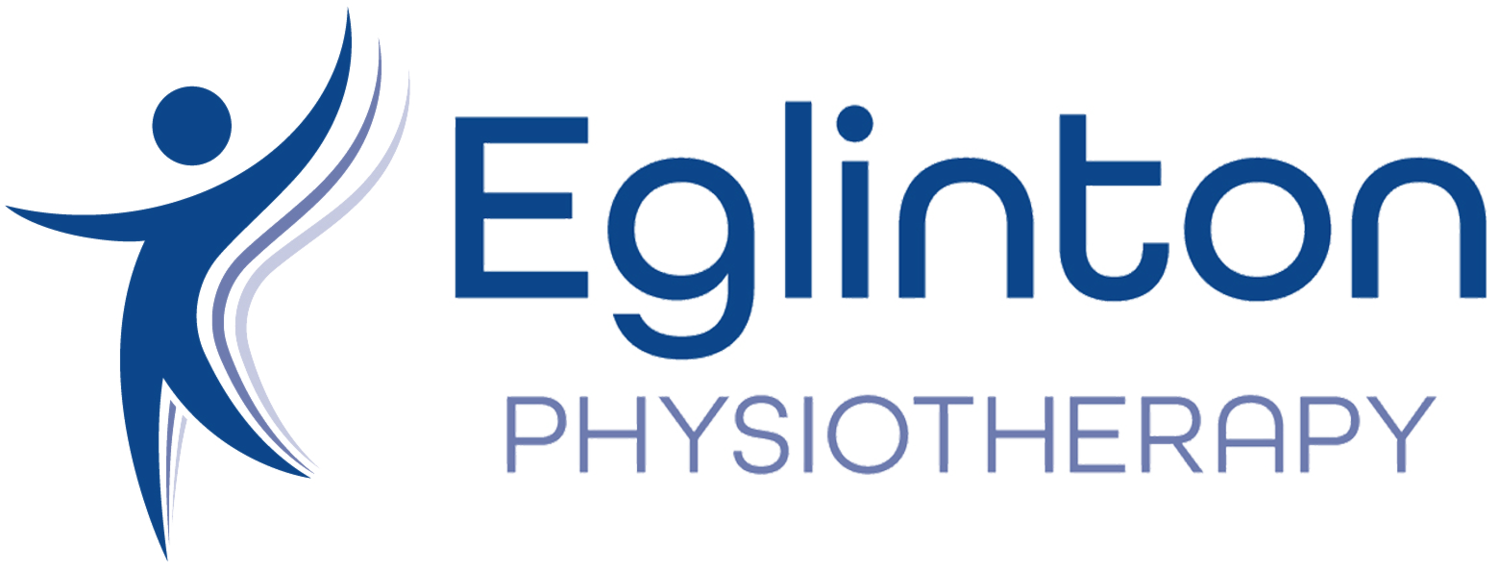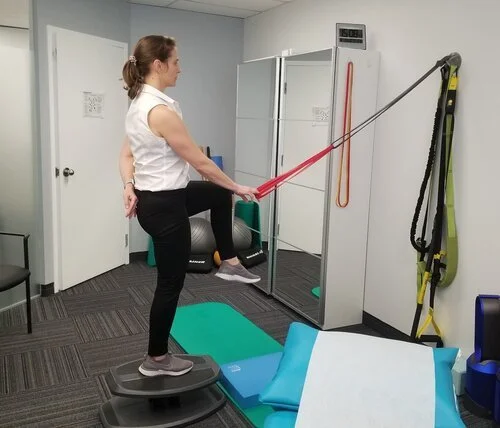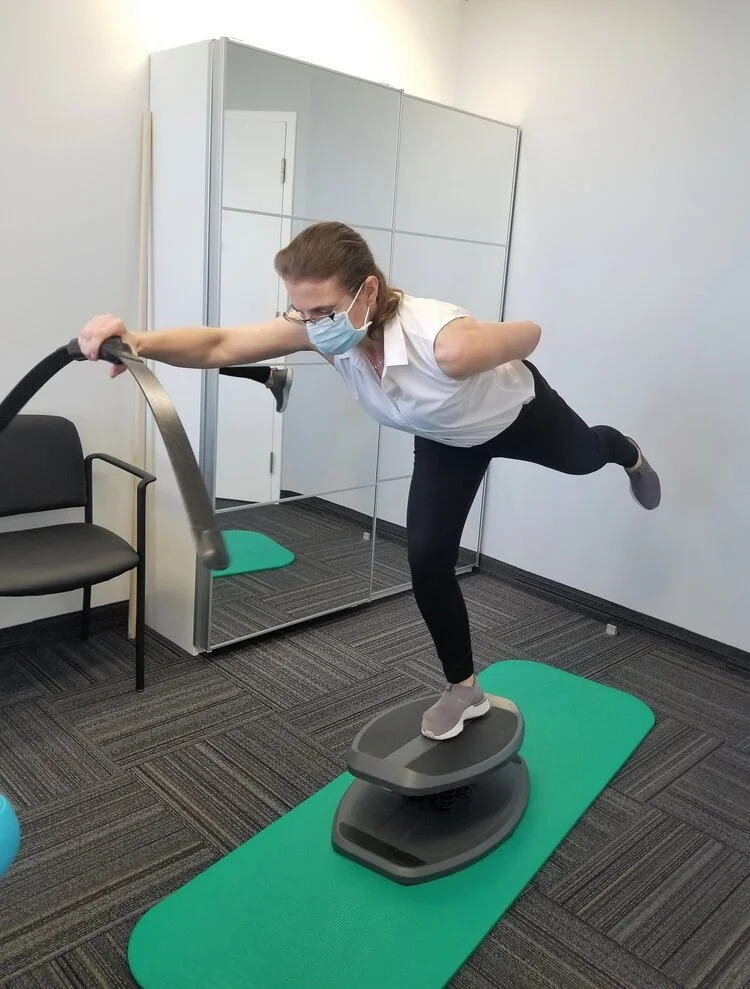
Vestibular and Balance Therapy
Vestibular Therapy
The Vestibular System is responsible for balance, equilibrium and telling the body where and how fast we are moving. Vestibular Rehabilitation is an evidence-based specialized form of physical therapy used to treat vestibular (inner ear/balance) disorders or symptoms. Vestibular therapy can help when suffering from: dizziness, vertigo, spinning, have trouble with balance, posture, or vision changes.
Advanced Balance Therapy
The combined INPUT from your Brain, Eyes, muscle, joints, ligaments and Vestibular organs from your inner ear are integrated to produce the desired OUTPUT – your “balance”.
When should you see a vestibular physiotherapist?
If you are experiencing some of the following symptoms:
Dizziness (can be continual or intermittent)
Vertigo (sensation of spinning)
Motion-sensitivity of yourself or surrounding objects
Disequilibrium (feeling of imbalance or unstable)
Light-headedness or unsteadiness
Increased risk of falls or fear of falling
Impaired vision (difficulty focusing, unstable/blurred vision)
Headaches or head pressure
Tinnitus (hearing noises such as ringing) or ear pressure/pain
Nausea
Brain fog - mild issues with memory and concentration
Benign Paroxysmal Positional Vertigo (BPPV) is one of the most frequent causes of vertigo (spinning), arising from a problem in the inner ear.
The symptoms are short lived and are related to changes in the head position relative to gravity such as looking up, lying flat quickly, turning in bed.
Symptoms specific to BPPV are:
spinning dizziness
visual disturbance
sudden spasms of short duration
the top of the eye rotates towards the affected ear as a beating or twitching
nausea, vomiting
How can Vestibular Therapy help you?
A thorough assessment of your symptoms is performed and a vestibular examination is conducted. A series of tests and position changes helps your physiotherapist understand the origin of your symptoms.
The recommended screening for BPPV is the Dix-Hallpike test, which helps to find the side of the lesion (right or left) and the specific labyrinth canal involved.
A specific vestibular exercise program will be given to you to work on at home based on the findings from the vestibular assessment.
The treatment depends on the underlying cause of your symptoms:
Specific maneuvers of the head for moving displaced crystals in your inner ear and exercises for your vestibular system and brain, may be part of your treatment program.
If symptoms are being caused by impairments of your cranium/brain and/or neck, these will be treated using a multi-modal approach – your whole body may be treated, and balance therapy and postural exercises may be used.
Sometimes an increase of symptoms such as dizziness, nausea or imbalance may occur after treatment as a consequence of the autonomic nervous system problem. That’s why we discourage individuals to try vestibular maneuvers on their own at home.


